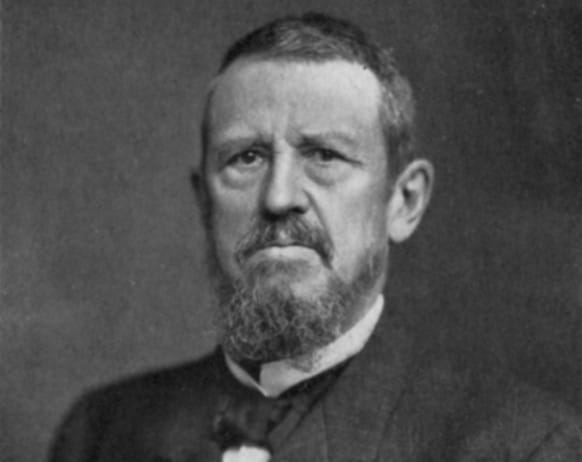JOSEPH WHARTON, FOUNDER
Philadelphia industrialist and philanthropist Joseph Wharton invented business education when he established the School in 1881. Born in 1826 to a Quaker family, Wharton made his fortune through entrepreneurial ventures in the production of lead, zinc, and nickel. After the Civil War he became the largest shareholder of Bethlehem Iron Company, which was renamed Bethlehem Steel Company. An early proponent of Frederick Taylor’s principles of scientific management with a keen interest in the natural sciences, Wharton wrote and published papers on astronomy and metallurgy throughout his life. He died in 1909.
DIRECTORS
Edmund J. James 1883–1896
Wharton’s first Director designed a practical curriculum that encouraged professional specialization along with instruction in the social sciences.
Simon N. Patten 1896–1912
Influenced by the Progressive Movement, Patten introduced concepts of “practical philanthropy” into Wharton’s curriculum.
DEANS
Roswell C. McCrea 1912–1916
Under his leadership, the Wharton faculty strengthened ties with Philadelphia’s government administrators.
William C. McClellan 1916–1919
McClellan worked closely with University trustees to raise the stature of the School within the University.
Emory R. Johnson 1919–1933
Johnson brought depth to Wharton’sprograms by requiring professional specialization among faculty and students.
Joseph H. Willits 1933–1939
Willits emphasized the importance of economic research and its application to the affairs of business. (More on p. 72)
Alfred H. Williams 1939–1941
A protégé of Willits, Williams later became president of the Philadelphia Federal Reserve Bank.
C. Canby Balderston 1942–1954
Balderston spearheaded a fund-raising campaign to make possible the construction of the first building for the Wharton School, Dietrich Hall.
C. Arthur Kulp 1955–1957
Kulp was the first Wharton dean to be named with the participation of faculty.
Willis J. Winn 1958–1971
Winn led curricular reform and upgraded Wharton’s academic programs, the PhD and entrepreneurial programs in particular.
Donald C. Carroll 1972–1983
Carroll enhanced the School’s depth and strength with interdisciplinary programs and inter-school degrees, including the undergraduate degree in Management & Technology.
Russell E. Palmer 1983–1990
Palmer successfully strengthened and broadened the faculty, increased the quality of applications, oversaw the building of the Steinberg Conference Center, and furthered the international and cross-disciplinary curriculum.
Thomas P. Gerrity 1990–1999
Gerrity oversaw the reengineering of the School’s MBA and undergraduate programs to reflect the technology-oriented world. He spearheaded the fundraising effort for Jon M. Huntsman Hall, the world’s premier business school academic facility.
Patrick T. Harker, 2000-2007
Harker strengthened the School’s focus on innovation, integrity, and engagement with the business community. He led the creation of Wharton West in San Francisco, forged an alliance with INSEAD, and led the Campaign for Sustained Leadership, the most successful business school campaign ever.
























